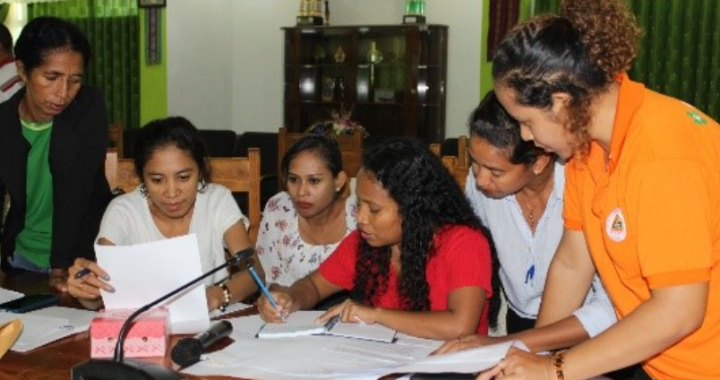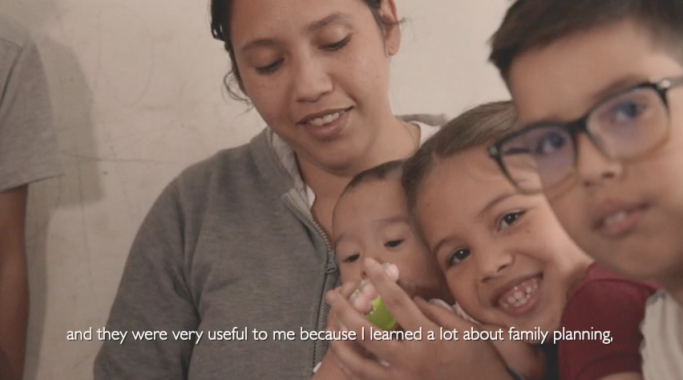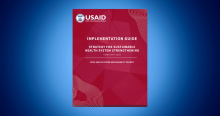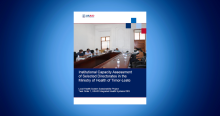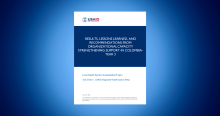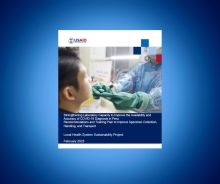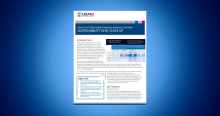Capacity Strengthening
The LHSS approach strengthens local capacity across a range of actors, using participatory and collaborative methods for understanding both the aspirations and the needs of different actors within the local context. Regardless of the intervention selected, our focus is on strengthening individual or organizational performance to lead to sustainable change in the health system.
LHSS’s approach considers three levels of intervention: the individual, organizational, and system level. Individual level interventions may include competency development for individuals in technical and managerial domains. At the organizational level, the focus is on strengthening the capacity of a single organization or operating unit of a larger entity. At the system level, the aim is to strengthen institutional arrangements and coordination mechanisms required for both public and private organizations to work together toward a common end.
Knowledge Products
This document outlines LHSS’s strategy for supporting the strengthening and scale up of local capacity through country and core activities. Designed for use by LHSS staff and local partners, this strategy provides a framework and details on how to develop, implement, monitor, and evaluate sustainable health system strengthening activities. This strategy replaces the LHSS Scale Up of Local Capacity Strategy (2019).
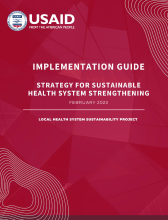
This implementation guide provides details on how project teams and local partners may implement the various approaches contained in the strategy, including tools and templates that may be adapted to country and activity contexts.
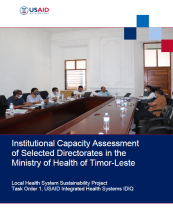
The purpose of Institutional Capacity Assessment is to identify interventions the Activity can undertake in partnership with the GoTL to strengthen their capacities to improve health-system governance and functioning.
The purpose of this report is to document the capacity strengthening process to promote the inclusion of the migrant population into the health system after almost one year of implementation. This process has already produced several products and results that can be replicated in other organizations and entities. The products and learnings here can be applied both for the inclusion of the migrant population into the health system and to strengthen the health system for the general population.
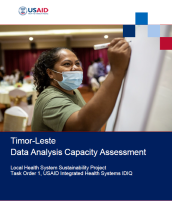
The purpose of the DACA was to assess: the Ministry of Health (MOH) data use and data quality processes; the opportunity and capacity of different levels of the health system to analyze data; health management information system (HMIS) governance; electronic HMIS deployment; the state of interoperability, and COVID-19 data capture.
Proper specimen collection and transport play an important role in the accurate and timely identification of newly emerging infectious diseases. This report provides recommendations for improving the specimen collection and transport system in Peru.
This two-pager focuses on USAID’s Learning Question 2, “What conditions or factors successfully facilitate the institutionalization and/or implementation at scale of good practices that improve health system outcomes, and why? What are lessons learned regarding planning for sustainability and achieving results at scale?”
This report documents a rapid assessment of the Honduran context to expand SHP for women and children in high-migration contexts, including women and children at risk of migration, returned migrants from the United States, and migrants in-transit through Honduran territories on their migration journey.

